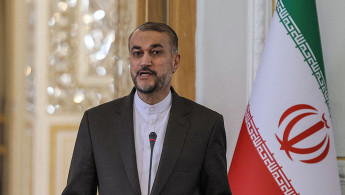Iran FM on first Saudi Arabia visit since ties restored: state media
Iranian Foreign Minister Hossein Amirabdollahian is expected on Thursday in Riyadh, his first official Saudi trip since a landmark rapprochement in March, state media reported.
The one-day visit "is focusing on bilateral ties, regional and international issues", said the IRIB state broadcaster.
It reported early on Thursday that Amirabdollahian "will leave Tehran for Riyadh in a few hours".
Shia-dominated Iran and Sunni Saudi Arabia had severed ties in 2016 after Saudi diplomatic missions in the Islamic Republic were attacked during protests over Riyadh's execution of Shia cleric Nimr Al-Nimr.
A Chinese-brokered deal announced in March saw the long-time rivals agreeing to restore diplomatic relations and reopen their respective embassies.
In June, Prince Faisal bin Farhan became the first Saudi foreign minister to travel to Iran since 2006.
Earlier that month Iran had reopened its embassy in Riyadh with a flag-raising ceremony.
And in another first since bilateral ties were restored, Iranian state media reported on Wednesday that military officials from both countries met in Moscow on the sidelines of a security conference.
Amirabdollahian has said this week that Iran's new ambassador to Saudi Arabia, Alireza Enayati, "will accompany" on Thursday's visit to "officially start his mission".
On 9 August, Iran said the Saudi embassy in Tehran had begun operations but Riyadh has yet confirm.
Iran and Saudi Arabia have backed opposing sides in conflicts across the Middle East for years.
Iran has in recent months been at odds with Saudi Arabia and Kuwait over a disputed gas field.
Saudi Arabia and Kuwait claim "sole ownership" to the field – known as Arash in Iran and Durra in Kuwait and Saudi Arabia – with Tehran warning it would "pursue its right" to the offshore zone if negotiations fail.





 Follow the Middle East's top stories in English at The New Arab on Google News
Follow the Middle East's top stories in English at The New Arab on Google News


